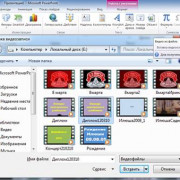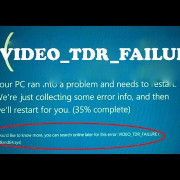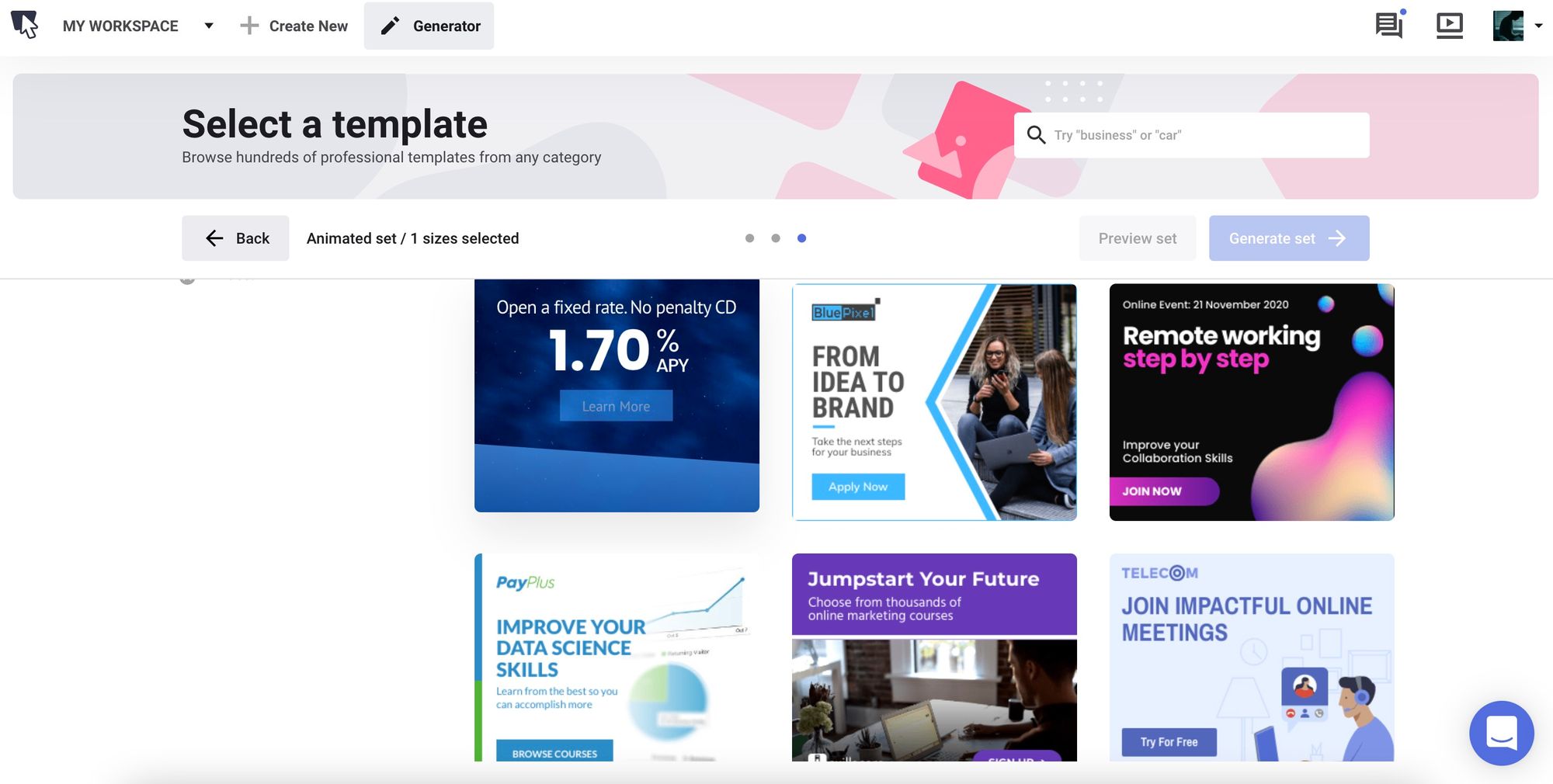Это бесплатное приложение
Содержание:
- Move of the OpenOffice.org Site
- The Apache Software Foundation Statement on Apache OpenOffice
- Product Development
- Getting Involved
- Extension Development
- Apache OpenOffice ReadMe
- OpenOffice.org 3.4 Beta Release
- ODF Support
- About ports and distributions
- Ports and distributions available now
- Enhancements to statistical functions
- Licenses of Legacy Releases of OpenOffice.org software
- OpenOffice.org 3.0 is available now
- Proprietary File Support
- OpenOffice in Native Languages
- Notes on Installation
Move of the OpenOffice.org Site
16 February 2011: The OpenOffice.org main site moves to a new infrastructure starting Monday February 21. It
will be in read-only mode for 4-5 days.
The move is going to include main site services like publishing of web content, mailing lists, bugtracking, … and the
existing data content of those. Projects are locked and mails (lists and user forwarding) are queued during the migration
process. Satellite sites like OpenOffice.org forums, extensions and templates sites, Wiki, mercurial repositories, … are
not affected.
Please find more information, some hints about the new
site and a mail list that continues to work during the migration at
http://kenai.com/projects/ooo-migration/pages/Home.
The Apache Software Foundation Statement on Apache OpenOffice
14 October 2011: On 1 June 2011, Oracle Corporation submitted the OpenOffice.org code base to The Apache
Software Foundation. That submission was accepted, and the project is now being developed as a podling in the Apache
Incubator under the ASF’s meritocratic process informally dubbed «The Apache Way». OpenOffice.org is now officially part
of the Apache family. The project is known as Apache OpenOffice. Over its 12-year history, the ASF has
welcomed contributions from individuals and organizations alike, but, as a policy, does not solicit code donations. The
OpenOffice.org code base was not pursued by the ASF prior to its acceptance into the Apache Incubator.
Read the complete ASF annoncement
Product Development
| Project | Short Name | Description | |
|---|---|---|---|
| Security | security | To improve security and privacy features in OpenOffice.org | |
| Performance | performance | To improve the performance of OpenOffice.org | |
| Word Processing | sw | The word processing application Writer the formula editor Math. | |
| Spreadsheet | sc | The spreadsheet application Calc. | |
| Graphic Applications | graphics | The Graphic applications like Impress, Draw and Chart. | |
| Graphic System Layer | gsl | The Graphic System Layer (GSL) project is an umbrella project to provide graphic output on different devices. Graphic output refers to a range of operations starting from simple line drawing to complex raster operations. | |
| Base / Database Access | dba | Base is OpenOffice.org’s database application. Additionally, this project provides the other applications with access to a variety of relational data sources in various formats. | |
| API | api | The application programming interface. | |
| Application Framework | framework | This project contains modules that define the general behaviour of the OpenOffice application components ( Writer, Calc etc. ) | |
| Build Tools and Environment | tools | The tools used in the build process and the build environment. | |
| Quality Assurance | qa | Quality Assurance: testing and qualifying all builds of OpenOffice.org. | |
| UNO Development Kit / Component Technology | udk | Object model development and component technology. Includes the old OI and Scripting projects. | |
| User Experience | ux |
The main goal of the User Experience Team is to make OpenOffice.org the best office suite in terms of usability, productivity and enjoyment. |
|
| User Interface | ui | Common user interface for OpenOffice.org applications. | |
| XML Project | xml | The OpenOffice.org XML project is the home of of XML related features of OpenOffice.org, like its OASIS OpenDocument/ISO/IEC 26300 file format implementation. It further provides some XML base implementations, like XML parser and printer components. |
Getting Involved
The OpenOffice Community would very much benefit from your active participation in the development of this important open source project.
As a user, you are already a valuable part of the suite’s development process and we would like to encourage you to take an even more active role with
a view to being a long-term contributor to the community. Please join and check out the user page at
https://openoffice.apache.org/get-involved.html
Subscribe
- News: announce@openoffice.apache.org *recommended to all users* (light traffic)
- Main user forum: users@openoffice.apache.org *easy way to lurk on discussions* (heavy traffic)
- General project development and discussion list: dev@openoffice.apache.org (heavy traffic)
Joining the Project
You can make major contributions to this important open source project even if you have limited software design
or coding experience. Yes, you!
At Get Involved you will find a first overview where you can start,
ranging from Localization, QA, and user support to some real core coding projects.
If you are not a developer, you can help with Documentation or Marketing, for example.
The OpenOffice marketing is applying both guerrilla and traditional commercial techniques to marketing open source software,
and we are doing it across language and cultural barriers, so you can help just by
spreading the word and telling a friend about this office suite. You can help by joining the marketing
mailing list marketing@openoffice.apache.org where you can provide point communication contact with press, media,
government agencies, consultants, schools, Linux Users Groups and developers in your country and local community.
We hope you enjoy working with the new OpenOffice 4.1.5 and will join us online.
The Apache OpenOffice Community
Extension Development
| Project | Short Name | Description |
|---|---|---|
| Extensions | extensions | The purpose of this project is to help produce, organize and deploy extensions. An extension is a third party tool that brings OOo new functionality. This can be done through addons, addins, deployed by UNO packages. Extensions also covers templates and galleries. |
| External | external | This project will host all the external code allowed. |
| Universal Content Broker | ucb | Allows the applications to transparently access content with different structures. |
| Bibliographic Project | bibliographic | To provide integrated bibliographic functionality in OpenOffice.org. |
Apache OpenOffice ReadMe
Last Update: 2017-12-30
Dear User
This file contains important information about this program. Please read this information very carefully before starting work.
The Apache OpenOffice Community, responsible for the development of this product, would like to invite you to participate as a community member.
As a new user, you can check out the Apache OpenOffice project site at openoffice.apache.org.
Please also read the sections below about getting involved in the Apache OpenOffice project.
Is OpenOffice really free for any user?
OpenOffice is free for use by everybody. You may take this copy of OpenOffice and install it on as many computers as you like,
and use it for any purpose you like (including commercial, government, public administration and educational use).
For further details see the license text delivered together with OpenOffice or https://www.openoffice.org/license.html
Why is OpenOffice free for any user?
You can use this copy of OpenOffice today free of charge because individual contributors and corporate sponsors have designed, developed, tested,
translated, documented, supported, marketed, and helped in many other ways to make OpenOffice what it is today — the world’s leading open-source
office software.
If you appreciate their efforts, and would like to ensure Apache OpenOffice continues into the future,
please consider contributing to the project — see https://openoffice.apache.org/get-involved.html for details on contributing time,
and https://www.apache.org/foundation/contributing.html for details on donations. Everyone has a contribution to make.
OpenOffice.org 3.4 Beta Release
12 April 2011: We are happy to announce that
OpenOffice.org 3.4 Beta is now ready for download. This Beta Release is available in
English and 69 additional languages which can be installed as language packs (localizations are still ongoing). Feel free
to download, test and give feedback. The best way to test is under real life conditions. OpenOffice.org is a community
effort and your input will help to make OpenOffice.org 3.4 even better!
The Beta testing period ends on May 2nd. Take advantage of this evaluation period to take a closer look at the
new SVG import, the improved ODF 1.2 support
and other enhancementsand help to find open issues. The following are the preferred ways to provide feedback. Happy
testing!
- send a mail to the mailing list qa@openoffice.apache.org with the
subject line starting with *Beta 3.4* - submit an issue in BugZilla
ODF Support
Open Document Format (ODF) standards, as promulgated by the Organization
for the Advancement of Structured Information Standards (OASIS), set international compatibility
criteria for the electronic/digital storage of documents.
These standards recognize the importance of interoperability and
intelligent information exchange and seek, for example, to ensure that
office documents created today on any given computer system will be
readable by other computer systems everywhere, including the technology of
tomorrow.
OpenOffice.org 3.2 has made further strides in compliance with ODF 1.2,
including closer conformance to OASIS ODFF/OpenFormula specifications.
- As OpenOffice.org 3.2 currently requires a superset of the ODF 1.2
specification, the software now warns users when ODF 1.2 Extended
features have been used. - The document integrity check now proves whether an ODF document
conforms to the ODF specification (this mainly affects ODF 1.2
documents). If an inconsistency is found, the document is treated as a
broken one, and OpenOffice.org offers to repair the document.
About ports and distributions
Apache OpenOffice (AOO) is a productivity suite which is already
officially available for the following platforms:
- Windows — XP, Vista, 7, 8, 10 (32-bit)
- Linux — RPM / DEB-based (32-bit and 64-bit)
- MacOS X (Intel) — 10.4 (Tiger) up to 10.15 (Catalina)
What is a port?
When making AOO available for another operating system or CPU architecture, then this is called «porting or a port».
Usually this is done on the source code level.
More general information here.
What is a distribution?
When taking an already available AOO installation and package it in a different way to make it ready to run directly,
e.g., from a USB stick resp. CD/DVD or on another Linux OS, then this is called «distribution or distro».
More general information here.
Ports and distributions available now
-
X-ApacheOpenOffice by winPenPack
(Apache OpenOffice Portable version for Windows)
Apache OpenOffice re-packaged as a live/portable program by the winPenPack team, allowing execution without further
installation, from a USB Flash Drive or Hard Disk. -
Apache OpenOffice Portable, by PortableApps.com
(Apache OpenOffice Portable version for Windows)
Apache OpenOffice re-packaged as a live/portable program by the PortableApps.com team, allowing execution without further
installation, from a USB Flash Drive or Hard Disk. -
AndrOpen Office
(Android port of Apache OpenOffice)
AndrOpen Office is the world’s first port of OpenOffice for Android, It is made available on Google Play by the AndrOpen
Office team and it requires Android 4.0.3 or later. -
A package repository by Marcelo Santana containing the same Debian packages as the official version, to provide an
easier way for installation of Apache OpenOffice on Debian and derivatives. For usage in Ubuntu, astep-by-step guide
(with commentary in Portuguese) is available too.
-
A port to OS/2 by
Yuri Dario and bww bitwise works GmbH. -
ProOO-Box
(German only)
A collection of open source applications for the office area, created by German community members. The core of the
collection is Apache OpenOffice.
Enhancements to statistical functions
-
NORMDIST’s 4th parameter is now optional.
- 0 or FALSE calculates the probability density function. Any other
value or TRUE or omitted calculates the cumulative distribution
function. - If omitted, 1 is written to files for backwards
compatibility.
- 0 or FALSE calculates the probability density function. Any other
-
LOGNORMDIST’s 2nd and 3rd parameters are now optional, an optional
4th parameter has been added.- The 2nd, mean, parameter has the default value 0 if omitted.
- If omitted, 0 is written to files for backwards
compatibility. - The 3rd, standard deviation, parameter has the default value 1 if
omitted. If omitted, 1 is written to files for backwards
compatibility. - The 4th, cumulative, parameter is defined as — 0 or FALSE
calculates the probability density function. Any other value or TRUE
or omitted calculates the cumulative distribution function. — If a
value was given, earlier releases reading the file cannot interpret
the function and return an error.
OASIS ODFF/OpenFormula specification
Licenses of Legacy Releases of OpenOffice.org software
Apache Releases follow specific policies concerning licensing that are closely tied to the branding of the product. It
still may be possible, however, to find older releases through third parties or Internet archives that lie out of the
control of the Apache Project. For this reason it is highly recommended to review carefully the documentation included with
the software.
For past releases under the SUN/Oracle umbrella, OpenOffice.org used a single open-source license for the source code and
a separate documentation license for most documents published on the website without the intention of being included in the
product. The source-code license was the GNU Lesser General Public License. Effective OpenOffice.org 3.0 Beta,
OpenOffice.org used the LGPL v3. The document license was the Public
Document License (PDL).
Works beside code donated to the project under cover of the Oracle Contributor Agreement (OCA) were held jointly by
Oracle for the project under the project’s prevailing license, in this case, the LGPL v.3. Even if you had already submitted
a copyright agreement (e.g., the SCA or its predecessors), you could also sign the PDL per work contributed, in which case
the PDL took precedence. In some cases, the use of the Creative Commons Attribution License (
«Attribution-NoDerivs 2.5») was also permitted. See
for details on the circumstances of using this license.
-
Public Document License (PDL)
PDF |
HTML |
RTF (text) -
GNU Lesser General Public License v3 (LGPL) (Effective with OpenOffice.org 3.0 Beta)
You can freely modify, extend, and improve the OpenOffice.org source code. The LGPL requires that all changes must be
made available if published. For more information on the LGPL, please also visit the:
Free Software Foundation’s FAQ.
Other Works
The preference was always for contributions of editable work. But in those cases where editable material was difficult to
obtain, there were several options; all presumed that the developer held copyright in the work:
- Developers would have signed a Contributor Agreement, which covers all work (and not just code) contributed to
OpenOffice.org; - In countries where laws allow it, the developer could make it public domain by declaring as much in a signed document;
or - developers could use the Creative Commons Attribution License (
«Attribution-NoDerivs 2.5»). SUN/Oracle only
accepted work under this license that was non-editable and for which there was no editable version that could be
contributed to the project.
OpenOffice.org 3.0 is available now
13 Oct 2008: Following three years of continuous improvement, OpenOffice.org has now reached the landmark
version 3.0, with a host of new features including native support for Mac OS X users.
Head to /download to download the en-US, da, de, fr, it, ja, ru, sv versions, and monitor the
platforms and languages page for details of the availability of other versions.
20 October 2008: NetBeans, the open-source platform and IDE for Java
development celebrates its 10th birthday 20 October, a week after OpenOffice.org celebrated its 8th. But the interesting
point about NetBeans for OpenOffice.org developers is its integration with OpenOffice.org. With NetBeans, one can easily
write extensions, and that’s only a start. See:
-
OpenOffice.org. NetBeans Integration
http://wiki.services.openoffice.org/wiki/OpenOffice_NetBeans_Integration -
OpenOffice.org Extensions with NetBeans LAB-9410
http://developers.sun.com/learning/javaoneonline/j1lab.jsp?lab=LAB-9410%20&yr=2008&track=1 - Using OpenOffice.org. API to generate PDF documents
http://blogs.sun.com/sebsto/entry/using_openoffice_api_to_generate
In a similar light, the Eclipse open-source framework also provides powerful
tools for creating OpenOffice.org extensions. See:
http://wiki.services.openoffice.org/wiki/OpenOffice_Eclipse_Integration
Proprietary File Support
OpenOffice.org 3.2 provides improved support for other common office
document types.
-
Password protected Microsoft Office XML files (supported
document types: MS Word 2007 documents (*.docx, *.docm); MS Word 2007
templates (*.dotx, *.dotm); MS Excel 2007 documents (*.xlsx, *.xlsm); MS
Excel 2007 binary documents (*.xlsb); MS Excel 2007 templates (*.xltx,
*.xltm); MS Powerpoint 2007 documents (*.pptx, *.pptm); MS Powerpoint
2007 templates (*.potx, *.potm)). - OLE objects, form controls and pivot tables can now be read from
MS Excel 2007 documents (*.xlsx, *.xlsb). - Encryption support within the Microsoft Word 97/2000/XP
filter allows password protected Microsoft Word documents to be saved
(using the Microsoft Office standard RC4 algorithm). - Filters for AportisDoc and PocketWord now support
type detection based on DocType. As a result, files in these formats can
be loaded without explicitly selecting the document type in the file
picker. - When writing string data to SYLK files, embedded double
quotes are no longer escaped by doubling; semicolons are now escaped by
doubling. This improves compatibility with files created by other
applications.
OpenOffice in Native Languages
The Native Language websites offer information, resources, and much more in a user’s native language.
We rely exclusively on volunteers to provide native language releases of Apache OpenOffice. We can always use more help even for languages where we already have maintainers. Please visit the Native Language Information area of the Apache OpenOffice project to find out more about native language support specifically, and please see Getting Involved for additional information on getting involved in Apache OpenOffice.
Please see:
- The download page for a list of officially released languages.
- Pootle for an overview of the current localization status.
- The OpenOffice source code for a full list of available languages, including those that are not yet on Pootle and those for which we have no website available (for example, many of the African localizations are not listed below).
In the following table, the status definitions for the Website column are:
| Status | Explanation |
|---|---|
| maintained | This web site is localized and current, and the download links are localized and working. |
| help wanted | This website needs help and may be incomplete, outdated or unmaintained. If you can help, please e-mail the saying that you can volunteer for updating a specific website translation. |
| Language | Website | OpenOffice availability |
|---|---|---|
| Afrikaans (af) | help wanted | outdated |
| Amharic (am) | help wanted | outdated |
| Arabic (ar) | help wanted | outdated |
| Armenian (hy) | maintained | outdated |
| Asturian (ast) | help wanted | current 4.1.x |
| Basque (eu) | help wanted | current 4.1.x |
| Bulgarian (bg) | help wanted | current 4.1.x |
| Catalan (ca) | help wanted | current 4.1.x |
| 正體中文 Chinese trad. (tw) | maintained | current 4.1.x |
| 简体中文 Chinese sim. (cn) | maintained | current 4.1.x |
| Czech (cs) | maintained | current 4.1.x |
| Danish (da) | maintained | current 4.1.x |
| Dutch (nl) | maintained | current 4.1.x |
| Esperanto (eo) | help wanted | outdated |
| Estonian (et) | help wanted | outdated |
| Finnish (fi) | maintained | current 4.1.x |
| French (fr) | maintained | current 4.1.x |
| Galician (gl) | help wanted | current 4.1.x |
| Gaelic — Scottish (gd) | help wanted | current 4.1.x |
| German (de) | maintained | current 4.1.x |
| Greek (el) | maintained | current 4.1.x |
| Hebrew (he) | maintained | current 4.1.x |
| Hindi (hi) | help wanted | current 4.1.x |
| Hungarian (hu) | help wanted | current 4.1.x |
| Icelandic (is) | help wanted | outdated |
| Indonesian (id) | help wanted | outdated |
| Italiano (it) | maintained | current 4.1.x |
| Japanese (ja) | maintained | current 4.1.x |
| Kabyle (kab) | help wanted | outdated |
| Khmer (km) | help wanted | current 4.1.x |
| Korean (ko) | help wanted | current 4.1.x |
| Lithuanian (lt) | maintained | current 4.1.x |
| Norwegian (no) | maintained | current 4.1.x |
| Oromo (om) | help wanted | outdated |
| Polish (pl) | maintained | current 4.1.x |
| Portuguese Europeu (pt) | maintained | current 4.1.x |
| Portuguese of Brasil (pt-br) | help wanted | current 4.1.x |
| Romanian (ro) | help wanted | outdated |
| Russian (ru) | maintained | current 4.1.x |
| Serbian — Cyrillic (sr) | help wanted | current 4.1.x |
| Serbian — Latin (sr-Latn) | maintained | current 4.1.x |
| Slovenian (sl) | help wanted | current 4.1.x |
| Slovakian (sk) | maintained | current 4.1.x |
| Spanish (es) | maintained | current 4.1.x |
| Swedish (sv) | maintained | current 4.1.x |
| Tamil (ta) | help wanted | current 4.1.x |
| Thai (th) | help wanted | current 4.1.x |
| Turkish (tr) | maintained | current 4.1.x |
| Ukrainian (uk) | help wanted | outdated |
| Valencian AVL (ca-XV) | help wanted | current 4.1.x |
| Valencian RACV (ca-XR) | help wanted | current 4.1.x |
| Vietnamese (vi) | help wanted | current 4.1.x |
(Legacy information for the Native Language Confederation, not accurate for Apache OpenOffice.)
Notes on Installation
Problems During Program Startup
If you encounter any startup problems not covered in your system specific README file, please
subscribe to our users mailing list, or Community Forums
for further assistance.
Shortcut Keys
Only shortcut keys (key combinations) not used your installed operating system can be used in OpenOffice. If a key combination in OpenOffice does not
work as described in the OpenOffice Help, check if that shortcut is already used by the operating system. To resolve such conflicts, you can change the
keys assigned by your operating system. Alternatively, you can change almost any key assignment in OpenOffice. For more information on this topic,
refer to the OpenOffice Help or the Help documentation of your operating system.
Due to a conflict with input method switching on multiple platforms, the following shortcut keys have been changed:
- — is now —
- — is now —
File Locking — Linux, Mac, Solaris
In the default setting, file locking is turned on in OpenOffice. To deactivate it, you have to set the appropriate environment variables
SAL_ENABLE_FILE_LOCKING=0 and export SAL_ENABLE_FILE_LOCKING. These entries are already in enabled form in the soffice script file.
Warning: The activated file locking feature can cause problems with Solaris 2.5.1 and 2.7 used in conjunction with Linux NFS 2.0. If your system
environment has these parameters, we strongly recommend that you avoid using the file locking feature. Otherwise, OpenOffice.org will hang when you try to
open a file from a NFS mounted directory from a Linux computer.













